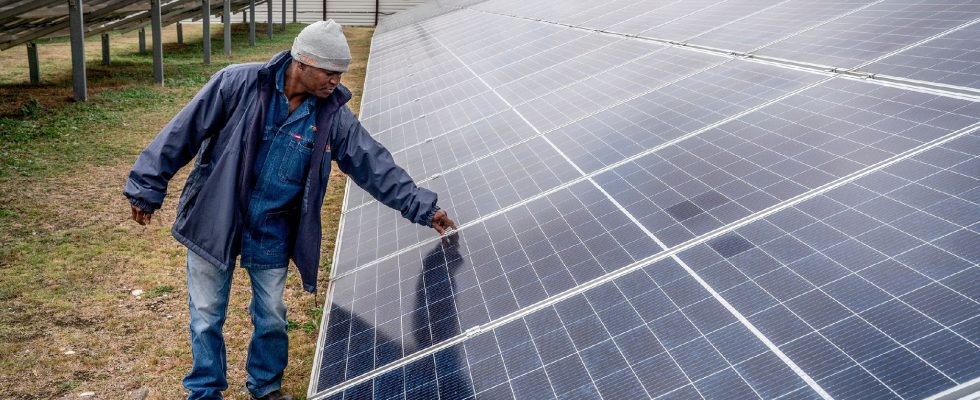Major international summits may serve as a sounding board, but they often exclude a large part of the world from conversations and negotiations. If we want to respect the Paris Agreement, all countries must participate, warn Marilia Bezerra, director of programs at the Ikea Foundation and Saliem Fakir, director general of the African Climate Foundation. The international community would even have a lot to learn from the way in which Africa envisages and carries out its climate action.
The fight against climate change requires strong messages, but also action. Leaders in the fight against global warming flock to United Nations General Assemblies, “climate weeks” and the COP to consolidate partnerships, launch new projects and new ideas. As representatives of the African Climate Foundation and the Ikea Foundation, we want to challenge our colleagues today: are we really turning our words into actions?
Many of these forums are obviously sounding boards. Information circulates from one circle to another, but a large part of the world finds itself de facto excluded from conversations and negotiations.
The global climate crisis knows no borders. This is a complex challenge that requires the efforts of communities, governments and institutions around the world. How can we get out of this impasse?
First, we need to stop defining the climate crisis by man-made boundaries. No real transformation of our economic and social systems will happen with just a handful of us. If we want to respect the Paris Agreement, we must all participate.
Second, for the transformation to succeed, climate solutions must go hand in hand with economic change. They will thus create a virtuous circle combining economic growth and resilience, rather than being perceived as an additional burden or cost.
Africa sets an example
And to respect the Paris Agreement, the African continent must be at the heart of this transformation. By 2050, Africa will have the youngest population in the world and be home to 19% of the world’s population. It is currently experiencing the fastest rate of urbanization in the world and its states are now key strategic players in global geopolitics.
The international community has a lot to learn from how Africa views and carries out its climate action. There are many opportunities to make a spectacular leap, by implementing more effective solutions than those existing in Europe and the United States.
Some African countries are already at the forefront of renewable energy models. In South Africa, for example, reforms have enabled households and businesses to use 5,000 MW of rooftop solar PV over the past year. There is no doubt that much more needs to be done to close the gap between rich and poor when it comes to access to clean energy. But the right reforms, with the right sources of financing, can already pave the way to energy security.
Economic resilience leads to climate resilience
The youth of the African population is an opportunity to accelerate the globalization of the continent, through its growing demand for digital access. Access to digital technology can in turn trigger the revolution in access to energy. The combination of energy and digital access will radically transform urban economies.
The amplification and diversification of entrepreneurial and economic activity will lead to increased income. This will have an impact on wages – which will be fairer – as well as on the amount of taxes and will ultimately make rural economies more stable. Which in turn will accelerate the transition to more resilient and sustainable agricultural practices such as regenerative agriculture.
Too few resources allocated to the climate
Foundations committed to climate change can play an essential role. But their priority must be to listen to those on the ground, who are best able to meet these challenges. Pragmatic solutions based on the real economy are needed to protect key economic players and households from the devastation caused by climate change and extreme weather.
Philanthropy must play a catalytic role both on the African continent and globally. Currently, only 2-3% of philanthropic resources are earmarked for climate: foundations around the world need to raise their game. Interdependence is a founding principle of life on our planet and our natural systems . It is time to realize this and organize ourselves accordingly.
Without the African continent, we cannot succeed in making this planet livable!
* Marilia Bezerra is Director of Programs at the Ikea Foundation; Saliem Fakir is Director General of the African Climate Foundation
